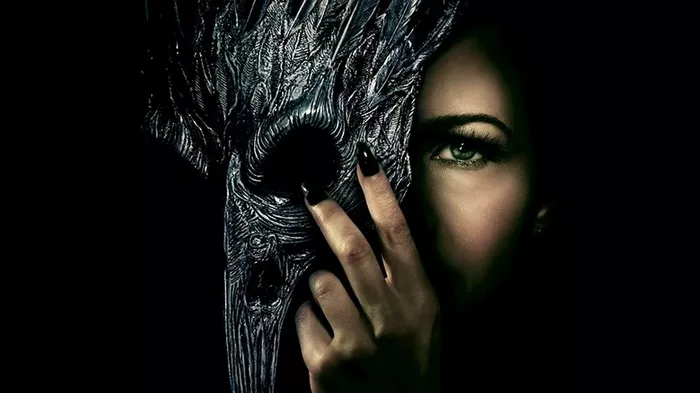Exploring the Intricate Link Between Edgar Allan Poe’s Works in the Netflix Miniseries
Edgar Allan Poe, the undisputed master of macabre and a literary legend, casts an enduring shadow over the realm of horror fiction. His haunting tales and poems have left an indelible mark on the world of literature, inspiring countless authors, filmmakers, and artists. Among those who dared to delve into the dark recesses of Poe’s imagination is Mike Flanagan, the acclaimed director behind the Netflix miniseries “The Fall of the House of Usher.” In this article, we embark on a captivating journey to unravel the profound connection between “The Fall of the House of Usher” and Poe’s iconic poem, “The Raven.” Our focus: the enigmatic repetition of the word “nevermore.”
A Celebration of Poe’s Dark Imagination: Flanagan’s Unique Approach
Mike Flanagan, renowned for his adept handling of horror narratives, embarked on a project that reverently paid homage to Edgar Allan Poe’s literary legacy. With “The Fall of the House of Usher,” Flanagan displayed a keen understanding of Poe’s timeless appeal and a willingness to explore the boundaries of adaptation. In crafting this miniseries, he seamlessly blended elements of Poe’s stories and poems into a modern retelling of a classic tale, showcasing his deep appreciation for Poe’s work and his ability to traverse different facets of the author’s literary universe.
Flanagan’s approach to adapting Poe’s tales sets “The Fall of the House of Usher” apart from conventional literary adaptations. While the series primarily draws inspiration from Poe’s short story of the same name, the incorporation of “The Raven” introduces an intriguing layer of complexity to the storytelling. It provides viewers with a unique opportunity to journey through the dark and mysterious realms of Poe’s imagination, where the line between reality and the supernatural often blurs, leading to a narrative that is as haunting as it is thought-provoking.
The Raven’s Haunting Repetition: A Symbolic Thread
“The Raven,” arguably one of Edgar Allan Poe’s most celebrated works, is renowned for its melancholic and foreboding atmosphere. The poem tells the haunting tale of a grief-stricken protagonist tormented by a mysterious raven that persistently utters the single word “nevermore.” This simple yet haunting refrain becomes a symbol of the narrator’s unending sorrow and despair, serving as a relentless reminder of the permanence of his grief.
In “The Fall of the House of Usher,” Mike Flanagan masterfully weaves this eerie repetition into the narrative. The word “nevermore” serves as a thematic link between the miniseries and “The Raven.” It symbolizes not only the loss and anguish experienced by the characters but also creates an ominous atmosphere that permeates the story. The echo of “nevermore” reverberates through the Usher mansion’s dimly lit corridors, intensifying the sense of dread and impending doom that characterizes the tale, offering a chilling testament to Flanagan’s ability to blend these two iconic works seamlessly.
Conclusion: Flanagan’s Artful Blend of Poe’s Dark Universe
“The Fall of the House of Usher” stands as a testament to Mike Flanagan’s prowess as a storyteller and his profound admiration for the works of Edgar Allan Poe. By seamlessly integrating elements from “The Raven” into his miniseries, Flanagan not only pays homage to the literary genius of Poe but also crafts a narrative that is both haunting and thought-provoking.
The repetition of “nevermore” in both Poe’s poem and “Fall of the House of Usher” serves as a poignant reminder of the eternal themes that pervade Poe’s body of work—loss, despair, and the inexorable march of time. Flanagan’s artful blend of these themes creates a narrative tapestry that showcases the enduring power of Poe’s dark imagination and cements his legacy as a master of the macabre. In the shadowy corridors of the Usher mansion, the echoes of “nevermore” continue to resonate, inviting viewers to explore the depths of darkness that lie within the human soul, in a truly masterful cinematic experience.

